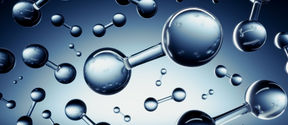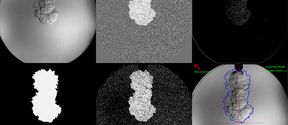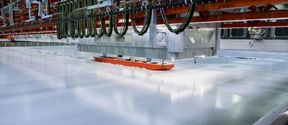Increasing the supply of renewable energy to the grid through wind and solar will continue to shape Finland’s energy future. However, as these sources fluctuate, solutions are required for efficient energy carriers, providing consistent supply without carbon emissions. Innovations in chemical engineering continue to improve the performance and lifespan of more sustainable batteries, but additional technologies are needed to meet the scale of demand while decreasing reliance on critical minerals.
This change of scale is where hydrogen plays a key role. Through processes of electrolysis, hydrogen can be used in fuel cells, which both store and convert energy for use, and can be used in reverse to store energy again. It can also be used directly as a carbon-neutral, combustible fuel, building on decades of knowledge in engines previously powered by fossil fuels.
Researchers from Aalto University’s School of Engineering are investigating direct injection of hydrogen fuel. This novel technology has the potential to eliminate engine backfire, increase thermal efficiency and reduce fuel consumption, compared with existing hydrogen fuel engine technologies. Using Schlieren imaging, a high-speed imaging process, the Energy Conversion and Systems Research Group analyse fluid density changes in the experiments. This allows the research team to effectively investigate gas jet behaviour, which is essential to developing direct injection engines.
This holds great potential for the maritime industry which could see hydrogen powered vessels in the not-too-distant future. One benefit of hydrogen fuel is that it is incredibly lightweight, especially when compared with an array of heavy batteries. This property could be of similar advantage in aviation or long-haul logistics over land, based on its success in maritime.
There is still work to be done in developing a green hydrogen economy, which requires significant amounts of electricity from renewable sources. Another factor to consider is the small size of Hydrogen atoms, complicating their storage. Steel-based containers and piping are affected by a process known as hydrogen embrittlement, compromising the structural integrity of the metal over time. Despite these challenges, the potential role that hydrogen will play in Finland’s climate-neutrality targets cannot be under-estimated.
Research such as this is one example of Aalto University’s contribution to Hydrogen Research Forum Finland. This new partnership of key universities and research institutions promotes hydrogen competence and action plans to support national decision making. By bringing together academic research and hydrogen alliances in the public and private sector, the forum strengthens Finland’s position as a leading knowledge base in the hydrogen value chain.



